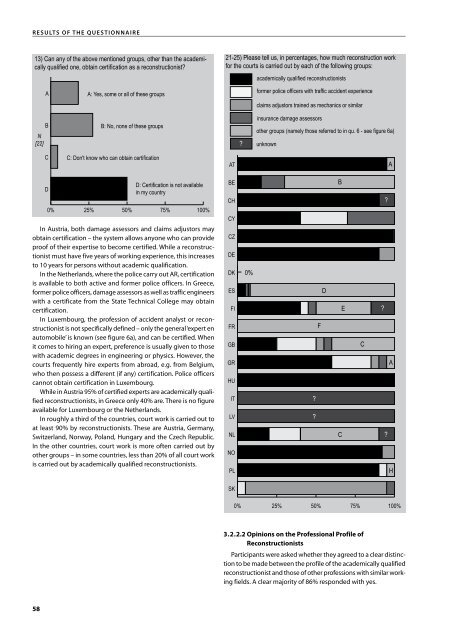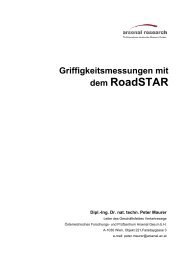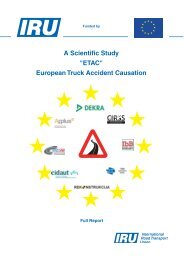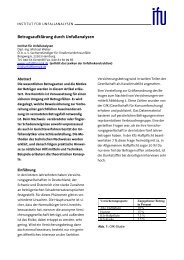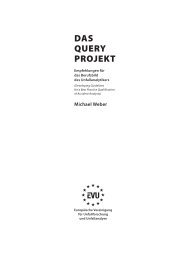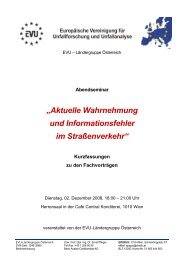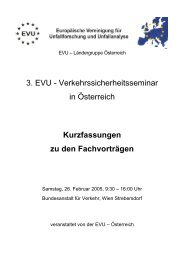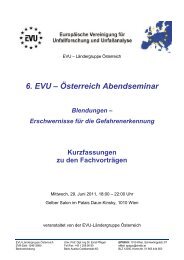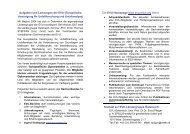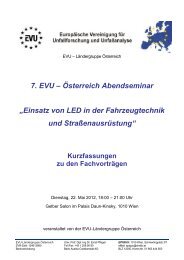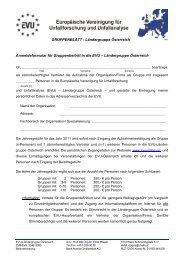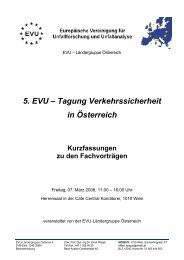THE QUERY PROJECT - European Commission - Europa
THE QUERY PROJECT - European Commission - Europa
THE QUERY PROJECT - European Commission - Europa
You also want an ePaper? Increase the reach of your titles
YUMPU automatically turns print PDFs into web optimized ePapers that Google loves.
R E S u lt S o f t h E Q u E S t I o n n A I R E<br />
13) Can any of the above mentioned groups, other than the academically<br />
qualified one, obtain certification as a reconstructionist?<br />
N<br />
[22]<br />
A<br />
B<br />
C<br />
D<br />
A: Yes, some or all of these groups<br />
B: No, none of these groups<br />
C: Don't know who can obtain certification<br />
D: Certification is not available<br />
in my country<br />
0% 25% 50% 75% 100%<br />
In Austria, both damage assessors and claims adjustors may<br />
obtain certification – the system allows anyone who can provide<br />
proof of their expertise to become certified. While a reconstructionist<br />
must have five years of working experience, this increases<br />
to 10 years for persons without academic qualification.<br />
In the Netherlands, where the police carry out AR, certification<br />
is available to both active and former police officers. In Greece,<br />
former police officers, damage assessors as well as traffic engineers<br />
with a certificate from the State Technical College may obtain<br />
certification.<br />
In Luxembourg, the profession of accident analyst or reconstructionist<br />
is not specifically defined – only the general ‘expert en<br />
automobile’ is known (see figure 6a), and can be certified. When<br />
it comes to hiring an expert, preference is usually given to those<br />
with academic degrees in engineering or physics. However, the<br />
courts frequently hire experts from abroad, e.g. from Belgium,<br />
who then possess a different (if any) certification. Police officers<br />
cannot obtain certification in Luxembourg.<br />
While in Austria 95% of certified experts are academically qualified<br />
reconstructionists, in Greece only 40% are. There is no figure<br />
available for Luxembourg or the Netherlands.<br />
In roughly a third of the countries, court work is carried out to<br />
at least 90% by reconstructionists. These are Austria, Germany,<br />
Switzerland, Norway, Poland, Hungary and the Czech Republic.<br />
In the other countries, court work is more often carried out by<br />
other groups – in some countries, less than 20% of all court work<br />
is carried out by academically qualified reconstructionists.<br />
21-25) Please tell us, in percentages, how much reconstruction work<br />
for the courts is carried out by each of the following groups:<br />
AT<br />
BE<br />
CH<br />
CY<br />
CZ<br />
DE<br />
DK<br />
ES<br />
FI<br />
FR<br />
GB<br />
GR<br />
HU<br />
IT<br />
LV<br />
NL<br />
NO<br />
PL<br />
SK<br />
?<br />
academically qualified reconstructionists<br />
former police officers with traffic accident experience<br />
claims adjustors trained as mechanics or similar<br />
insurance damage assessors<br />
other groups (namely those referred to in qu. 6 - see figure 6a)<br />
unknown<br />
0% 25% 50% 75% 100%<br />
. . .<br />
0%<br />
Opinions on the Professional Profile of<br />
Reconstructionists<br />
?<br />
?<br />
Participants were asked whether they agreed to a clear distinction<br />
to be made between the profile of the academically qualified<br />
reconstructionist and those of other professions with similar working<br />
fields. A clear majority of 86% responded with yes.<br />
F<br />
D<br />
B<br />
C<br />
E<br />
C<br />
?<br />
?<br />
?<br />
A<br />
A<br />
H


